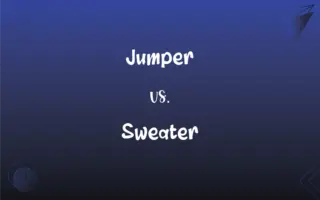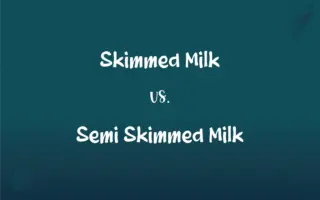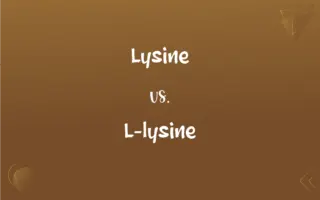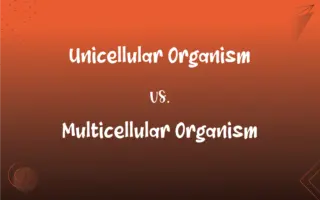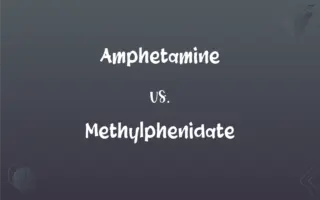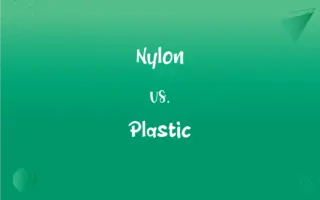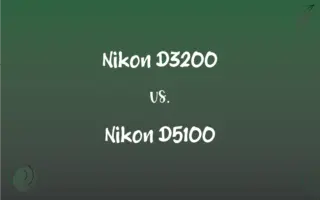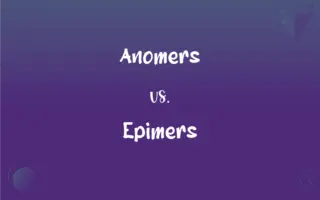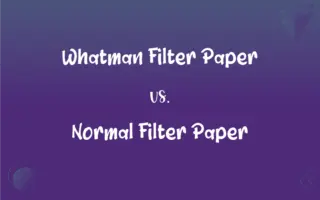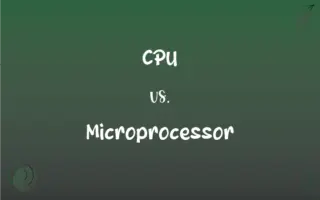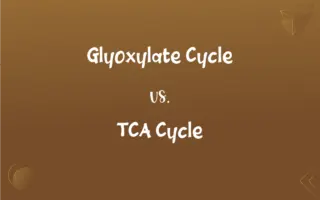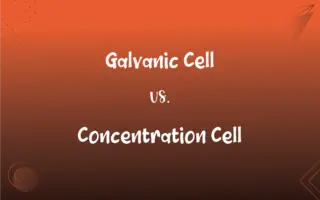Polyps vs. Medusae: What's the Difference?
Edited by Aimie Carlson || By Harlon Moss || Updated on October 29, 2023
Polyps are a sedentary stage in the life cycle of cnidarians, while medusae are the free-swimming stage.

Key Differences
Polyps are a form of cnidarians, which include organisms such as corals and sea anemones. They are typically sedentary, attaching themselves to a substrate and capturing prey with their tentacles. Polyps reproduce asexually, budding off new polyps to create colonies.
Medusae, on the other hand, are the free-swimming form of cnidarians, which include jellyfish. They are typically bell-shaped and move through the water using a pulsating motion. Medusae reproduce sexually, releasing eggs and sperm into the water.
The life cycle of many cnidarians includes both polyp and medusa stages. The polyp stage typically gives rise to the medusa stage through a process known as budding. Once the medusa is mature, it can release eggs and sperm to create new polyps, continuing the cycle.
It is important to note that not all cnidarians have both polyp and medusa stages. Some species may exist solely as polyps, while others may exist solely as medusae.
Comparison Chart
Movement
Sedentary
Free-swimming
ADVERTISEMENT
Shape
Varies, often cylindrical
Bell-shaped
Habitat
Attached to substrate
Open water
Examples
Corals, sea anemones
Jellyfish
Polyps and Medusae Definitions
Polyps
Polyps are typically sedentary.
Sea anemones are polyps that attach themselves to rocks.
Medusae
Medusae move using a pulsating motion.
The medusa's pulsating motion propels it through the water.
ADVERTISEMENT
Polyps
Polyps capture prey with their tentacles.
The polyp's tentacles contain stinging cells to capture prey.
Medusae
Medusae are typically bell-shaped.
The medusa's bell shape helps it move through the water.
Polyps
Polyps are a form of cnidarians.
Corals are a type of polyp.
Medusae
Medusae are the free-swimming form of cnidarians.
Jellyfish are a type of medusa.
Polyps
Polyps can exist in colonies.
Coral reefs are made up of colonies of polyps.
Medusae
Medusae are found in open water.
Medusae can be found in oceans and seas around the world.
FAQs
What are medusae?
Free-swimming form of cnidarians.
Do all cnidarians have both polyp and medusa stages?
No, some exist solely as polyps or medusae.
What are polyps?
Sedentary form of cnidarians.
Do medusae have tentacles?
Yes, they use them to capture prey.
Do medusae have stinging cells?
Yes, they use them to capture prey.
Do polyps release eggs and sperm?
No, that is typical of medusae.
How do polyps reproduce?
Asexually, by budding off new polyps.
How do medusae reproduce?
Sexually, by releasing eggs and sperm.
Are jellyfish polyps or medusae?
Jellyfish are medusae.
Can medusae be found in freshwater?
Some species can, but most are found in saltwater.
Do medusae attach themselves to a substrate?
No, that is typical of polyps.
Can polyps move?
They are typically sedentary, but some can move slowly.
Do polyps have a pulsating motion?
No, that is typical of medusae.
Do medusae bud off new medusae?
No, that is typical of polyps.
Do polyps have a bell shape?
No, that is typical of medusae.
Can medusae be found in coral reefs?
They are typically found in open water, but some species may be found near reefs.
Can medusae exist in colonies?
No, that is typical of polyps.
Are corals polyps or medusae?
Corals are polyps.
Can polyps exist in colonies?
Yes, coral reefs are made up of colonies of polyps.
Are there any species of cnidarians that do not have a medusa stage?
Yes, some species exist solely as polyps.
About Author
Written by
Harlon MossHarlon is a seasoned quality moderator and accomplished content writer for Difference Wiki. An alumnus of the prestigious University of California, he earned his degree in Computer Science. Leveraging his academic background, Harlon brings a meticulous and informed perspective to his work, ensuring content accuracy and excellence.
Edited by
Aimie CarlsonAimie Carlson, holding a master's degree in English literature, is a fervent English language enthusiast. She lends her writing talents to Difference Wiki, a prominent website that specializes in comparisons, offering readers insightful analyses that both captivate and inform.
















